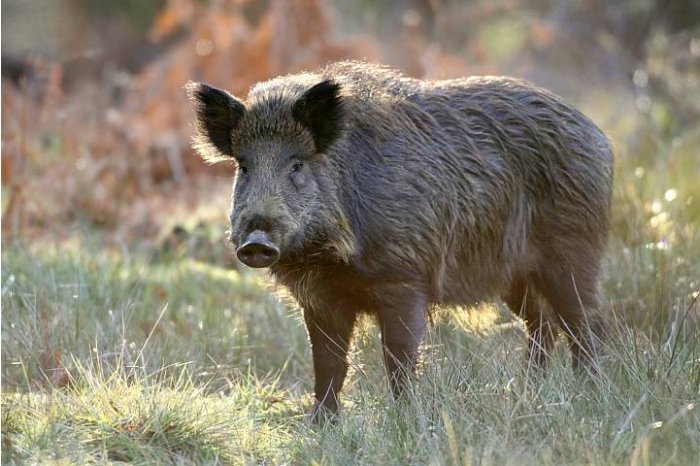African swine fever detected in wild boars in two Moldovan districts
14:03 | 04.10.2018 Category: Social
Chisinau, 4 October /MOLDPRES/ - Two hotbeds of African swine fever virus (ASFV) have been detected in wild boars in the villages Tahnauti, northern Rezina district and Palanca, south-eastern Stefan Voda district, in the last week.
According to the last bulletin of epizootic diseases of the National Food Safety Agency (ANSA), laboratory results showed that the animals were sick with African swine fever.
Contacted by MOLDPRES, the chief forestry engineer of the Moldsilva Forestry Agency, Nicolae Munteanu, has informed that specialists of Moldovan forestry entities, especially those regarded by ANSA, took the situation under control and were working in special regime of epidemiological record. “Wild boars can be a means of spread of the disease, as they cover large distances, easily coming from hit areas. At present, an action plan is compiled, coordinated with ANSA and fulfilled, so that the disease does not spread and the current hotbeds be liquidated. We will keep an eye on how things are unfolding and we will try to improve the situation; otherwise, regulations point to depopulating the forests of wild boars, which should be avoided,” Nicolae Munteanu said.
The Moldsilva decision-taker also said that the hunting of wild boars had been allowed starting from 29 September. This year, the full limit of hunting wild boars is 1,138 animals. This number, increased against other years, has been established as a result of the need of actions to prevent the spread of the African swine fever through wild boars.
ANSA’s data shows that, in late last September – early October, new cases of swine fever were also identified in Romania, Ukraine, Hungary, Latvia, Poland, Russia, China and other countries. The situation is monitored by the World Organization for Animal Health, which undertakes needed measures demanded by international organizations.
In Moldova, ANSA worked out a comprehensive programme of measures aimed at counteracting the disease. Under an order issued by the Agency, the transportation of pigs and products and sub-products coming from them from the countries hit by the swine fever is seen to be temporarily restricted and pigs are banned from being sold at agricultural markets and animal fairs from Moldova.
The problem of African swine fever virus got back in the focus of Moldova’s authorities after, in October 2017, three households with infected pigs had been identified in the Palanca village, Stefan Voda district. Afterwards, new ASFV hotbeds were notified in more settlements and regions of the country.
In 2018, 25 hotbeds of swine fever were already registered in Moldova, of which 16 ones are active. So far, 14 districts from south-eastern Moldova have been affected by this virus, with 253 domestic pigs slaughtered.
The African swine fever virus is a dangerous disease, untreatable and without vaccine till present, which hits the domestic and wild species of pigs. ASFV is transmitted by direct or indirect contact between animals, by feeding animals with slops containing meats or secondary goods coming from infected animals, insects which fed themselves from infected animals, or even through contaminated tools, clothes, fodder. ASFV survives in fecal materials of infected animals during 6-10 days, up to 3-6 months in pork products which are not treated thermally and more years in frozen pork. The death rate of the infected animals is 100 per cent.
(Reporter L. Grubii, editor L. Alcaza)

